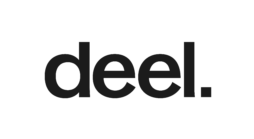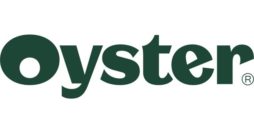Guide
In today’s rapidly changing business landscape, companies are facing unprecedented challenges when it comes to managing their workforce. With the rise of the gig economy and the growing trend of remote work, employers are struggling to keep up with the changing regulations and compliance requirements. This is where Employer of Record (EOR) services come in. EOR is a popular business model that helps employers manage their workforce by taking on certain responsibilities related to human resources and payroll. In this article, we will discuss how EOR service model works and the three types of EOR contracts you should know about.
What is an Employer of Record (EOR)?
An Employer of Record (EOR) is a third-party entity that assumes certain responsibilities related to human resources and payroll for another company. Under the EOR model, the employer transfers certain employment-related responsibilities to the EOR, which becomes the legal employer of the workers. The EOR is responsible for tasks such as payroll processing, tax withholding, benefits administration, and compliance with employment laws and regulations. The EOR model is becoming increasingly popular among businesses that want to streamline their HR and payroll processes and reduce their administrative burden. By outsourcing these tasks to an EOR, companies can focus on their core business activities and save time and money on administrative tasks.Recommended Service:
Deel

How Does the EOR Service Model Work?
The EOR service model works by dividing employment responsibilities between the client company and the EOR. The client company retains control over the day-to-day activities of the workers, while the EOR assumes certain administrative and legal responsibilities. Here's how it works in practice: 1. The client company identifies the workers it wants to hire and establishes the terms of the employment relationship, including job duties, pay rates, and work schedules. 2. The client company signs an agreement with the EOR that outlines the scope of services and the fees to be charged. 3. The EOR hires the workers on behalf of the client company and assumes responsibility for HR and payroll-related tasks, such as processing payroll, withholding taxes, administering benefits, and ensuring compliance with employment laws and regulations. 4. The workers perform their job duties under the direction and control of the client company, but their employment status and administrative responsibilities are managed by the EOR. 5. The EOR issues paychecks to the workers and handles all tax and compliance-related paperwork.Types of EOR Contracts You Should Know About
There are three main types of EOR contracts that you should be aware of. These include:1. Co-employment contract
Under a co-employment contract, the EOR becomes a co-employer of the workers alongside the client company. In this arrangement, the client company retains control over the day-to-day activities of the workers, while the EOR assumes certain administrative and legal responsibilities. This type of contract is often used in situations where the client company wants to maintain a high degree of control over its workforce but needs help with HR and payroll tasks.2. Payrolling contract
A payrolling contract is a type of EOR arrangement where the EOR assumes responsibility for payroll processing and tax withholding, but not for other HR-related tasks such as benefits administration or compliance. In this arrangement, the client company retains full control over the day-to-day activities of the workers and assumes responsibility for all other HR-related tasks.3. Global EOR contract
A global EOR contract is a type of EOR arrangement that is designed for companies that have a global workforce. Under this type of contract, the EOR assumes responsibility for HR and payroll-related tasks for workers in multiple countries. This can help companies streamline their global payroll processes and ensure compliance with local labor laws and regulations. In conclusion, the Employer of Record (EOR) service model has become an increasingly popular solution for companies looking to expand their operations globally while maintaining compliance with local labor laws and regulations. By outsourcing the legal and administrative responsibilities of employing workers to an EOR provider, companies can focus on their core business activities and achieve their expansion goals quickly and efficiently.Best Employer of Record Solutions
Employer of record allows you to efficiently operate your newly established business overseas and work with foreign employees. With many EOR companies claiming to offer the best services, employers find it challenging to select the best for their needs. Here are our top 5 picks based on thorough tests and comparisons.1. Deel
 Deel offers an all-in-one EOR platform for companies across over 80 countries globally. It is one of the best EOR for staffing companies or any other business that expands its services across borders. Deel handles the entire hiring process, manages compliance, and takes care of HR administration and employee benefits. By managing your business, you are guaranteed seamless operation in compliance with local laws. As a result, you will easily focus on business development and take your company to another level.
We consider Deel one of the best EOR companies because it is easy to set up and available in over 12 languages. We all know the importance of diversity and inclusion in a business, and Deel helps you meet all your objectives while retaining your brand reputation.
Deel offers an all-in-one EOR platform for companies across over 80 countries globally. It is one of the best EOR for staffing companies or any other business that expands its services across borders. Deel handles the entire hiring process, manages compliance, and takes care of HR administration and employee benefits. By managing your business, you are guaranteed seamless operation in compliance with local laws. As a result, you will easily focus on business development and take your company to another level.
We consider Deel one of the best EOR companies because it is easy to set up and available in over 12 languages. We all know the importance of diversity and inclusion in a business, and Deel helps you meet all your objectives while retaining your brand reputation.
2. Papaya Global
 Papaya Global stands out as the best Employer of Record (EOR) service for several compelling reasons. With a global presence spanning over 170 countries, Papaya Global offers unparalleled expertise in navigating complex international labor laws and tax regulations. Their comprehensive EOR services, including payroll processing, benefits administration, and HR support, simplify global workforce management for businesses. Leveraging advanced technology and automation, Papaya Global streamlines EOR processes, ensuring accuracy and compliance while saving valuable time. The platform's dedication to compliance assurance, dedicated customer support, scalability, cost efficiency, and data security make it the preferred choice for businesses looking to expand their global workforce seamlessly and compliantly.
Papaya Global stands out as the best Employer of Record (EOR) service for several compelling reasons. With a global presence spanning over 170 countries, Papaya Global offers unparalleled expertise in navigating complex international labor laws and tax regulations. Their comprehensive EOR services, including payroll processing, benefits administration, and HR support, simplify global workforce management for businesses. Leveraging advanced technology and automation, Papaya Global streamlines EOR processes, ensuring accuracy and compliance while saving valuable time. The platform's dedication to compliance assurance, dedicated customer support, scalability, cost efficiency, and data security make it the preferred choice for businesses looking to expand their global workforce seamlessly and compliantly.
3. Multiplier
 Multiplier is widely recognized as the premier Employer of Record (EOR) service due to its comprehensive platform that efficiently manages global teams' payroll, taxes, social contributions, and local insurance policies while ensuring compliance. By simplifying onboarding and payroll processes, Multiplier enhances HR and payroll teams' productivity, allowing them to focus on strategic initiatives.
Multiplier is widely recognized as the premier Employer of Record (EOR) service due to its comprehensive platform that efficiently manages global teams' payroll, taxes, social contributions, and local insurance policies while ensuring compliance. By simplifying onboarding and payroll processes, Multiplier enhances HR and payroll teams' productivity, allowing them to focus on strategic initiatives.
4. Oyster
 Oyster is one of the most trusted business and workforce management partners globally. This EOR company boasts of featuring fast compliant hiring procedures, whereby you get to hire and onboard your team within days. Additionally, using it gives you access to free HR resources so you can easily monitor your workforce globally. Oyster is available in over 180 countries globally, and users attest that using it has streamlined their overall business management procedures.
The best element about Oyster is that it allows you to also manage your hiring and employee management procedures remotely. You will have access to country-specific legal and HR guidance to ensure you remain compliant with each country’s local laws. You will also be able to easily manage payroll and employee benefits.
Oyster is one of the most trusted business and workforce management partners globally. This EOR company boasts of featuring fast compliant hiring procedures, whereby you get to hire and onboard your team within days. Additionally, using it gives you access to free HR resources so you can easily monitor your workforce globally. Oyster is available in over 180 countries globally, and users attest that using it has streamlined their overall business management procedures.
The best element about Oyster is that it allows you to also manage your hiring and employee management procedures remotely. You will have access to country-specific legal and HR guidance to ensure you remain compliant with each country’s local laws. You will also be able to easily manage payroll and employee benefits.
Top Factors to Consider While Selecting Global EOR
1. Expertise and Experience
The first factor to consider when selecting an EOR is their expertise and experience in the country where you plan to expand. EORs that have been operating for several years in the country and have a strong track record of successful compliance and payroll management can provide the confidence and peace of mind that your business will be compliant with local laws and regulations. It is also important to assess whether the EOR has experience working with businesses in your industry, as different industries may have unique compliance requirements. An EOR with specific expertise in your industry can provide customized solutions to meet your needs and mitigate risks.2. Fixed Price
One of the most important factors to consider when choosing an EOR is pricing. Many EORs charge a percentage of the employee's pay as their fee. This pricing model can be expensive, and it can also be difficult to predict how much you will be paying each month. Instead, look for an EOR that offers a fixed price. This way, you will know exactly how much you will be paying each month, and you can budget accordingly.3. Compliance and Risk Management
Compliance and risk management are critical considerations when selecting an EOR. The EOR should have a comprehensive understanding of the legal and regulatory requirements related to employment in the foreign country, and have established systems and processes to ensure compliance with these requirements. Additionally, the EOR should have a robust risk management framework to identify, assess, and mitigate potential risks related to employment, payroll, and taxes. The EOR should also have a contingency plan in place to manage any unforeseen risks that may arise.4. Having their own Entities
Another crucial consideration when selecting an EOR is whether they have their own entities in the countries where you operate. Some EORs may use other vendors to provide services in certain countries, which can lead to additional costs and potential legal issues. Choosing an EOR with their own entities ensures that you are working with a company that has a local presence and expertise, and that they can provide seamless services without relying on third-party vendors.5. Service Level and Reviews
When evaluating EORs, it is also essential to consider their service level and customer reviews. Look for an EOR that has a proven track record of delivering high-quality services to their clients. This can include things like timely and accurate payroll processing, compliance with local regulations, and responsive customer support. Additionally, reading reviews from other businesses that have used the EOR's services can provide valuable insights into their strengths and weaknesses. Look for EORs with positive reviews and a reputation for delivering reliable, high-quality services.6. Flexibility and Customization
Every company has unique requirements, and the EOR should be able to provide customized solutions that meet your specific needs. The EOR should be flexible and adaptable to your changing business needs, allowing you to scale up or down your workforce without incurring unnecessary costs or delays. The EOR should also provide a range of services that can be tailored to your requirements, such as payroll management, benefits administration, immigration services, and tax compliance. You should have the flexibility to choose only the services that you need, and the EOR should be able to provide them seamlessly.7. Technology and Infrastructure
Technology plays a critical role in managing a global workforce, and the EOR should have robust infrastructure and systems in place to manage payroll, compliance, and reporting efficiently. The EOR should have a secure and reliable technology platform that can integrate with your existing systems and provide real-time access to payroll and compliance data. The EOR should also have a dedicated team of IT professionals who can provide technical support and resolve any issues promptly. A strong technology infrastructure can help reduce errors, increase efficiency, and provide transparency into your global payroll and compliance activities.8. Ease of Use
Finally, when selecting an EOR, it is essential to consider how easy their platform is to use. You will be interacting with the EOR's platform regularly, so it is crucial that it is user-friendly and intuitive. Look for an EOR with a platform that is easy to navigate, and that provides clear, concise information on payroll and compliance matters. Additionally, look for an EOR that offers excellent customer support, so you can quickly resolve any issues that arise.When Should Companies Use a Global Employer of Record?
Companies should consider using a Global Employer of Record when they are expanding their operations to a new country and want to hire local employees quickly and cost-effectively. Here are some scenarios where an EOR could be useful:1. Testing the waters in a new market:
When a company is considering entering a new market, it may want to test the waters before investing in a legal entity. An EOR can provide a low-risk solution by allowing the company to hire local employees and start operations without the need to establish a legal entity.2. Quick hiring:
When a company needs to hire employees quickly in a foreign country, an EOR can help expedite the process. The EOR already has local knowledge and infrastructure in place, so it can help the company onboard new employees quickly and efficiently.3. Compliance:
Each country has its own set of labor laws and regulations, and compliance can be a challenge for companies operating in multiple countries. An EOR can ensure that the company is compliant with local laws and regulations, reducing the risk of legal and financial penalties.4. Cost-effective:
Establishing a legal entity in a foreign country can be costly and time-consuming. An EOR provides a cost-effective alternative by allowing a company to hire local employees without the need to establish a legal entity.5. Limited resources:
Some companies may have limited resources or expertise in managing international employment and compliance matters. An EOR can provide the necessary expertise and support, allowing the company to focus on its core business.Difference Between EOR and PEO
1. Legal Responsibility
One significant difference between EOR and PEO is the legal responsibility. In an EOR relationship, the EOR is the legal employer of the staff, while in a PEO relationship, the company retains some legal responsibility as the co-employer. This difference has implications for the amount of control the company has over its employees and the level of risk involved. In an EOR relationship, the company outsourcing the work has little to no legal responsibility for the employees, which can be beneficial in terms of reducing liability. However, in a PEO relationship, the company retains some legal responsibility, which can be beneficial in terms of retaining more control over the employees.2. Employee Benefits
Another significant difference between EOR and PEO is the way employee benefits are handled. In an EOR relationship, the EOR is responsible for administering employee benefits, such as health insurance and retirement plans. The EOR typically offers a range of benefits options to employees, which can be attractive to potential hires. In contrast, in a PEO relationship, the company outsourcing the work is responsible for providing employee benefits. The PEO provides a platform for administering the benefits, but the company ultimately chooses and funds the benefits.3. Cost
Cost is another important consideration when deciding between EOR and PEO. In general, EOR services tend to be more expensive than PEO services. This is because the EOR takes on all employment responsibilities, including legal liability and compliance, which requires a significant amount of resources. In contrast, PEO services are typically less expensive because the company outsourcing the work shares some of the employment responsibilities.4. Level of Control
One of the main differences between EOR and PEO is the degree of control they offer to the businesses. With an EOR, the third-party company assumes all the employer responsibilities, and the business has little to no control over the workforce. In contrast, a PEO offers businesses more control over their workforce while still handling the administrative functions.5. Risk
Another difference between the two is the level of risk involved. Since an EOR is the legal employer of the workforce, they assume all the risks associated with employment. This means that if there are any legal issues or liabilities, the EOR is responsible for them. In contrast, a PEO shares the risk with the business, and both parties are responsible for complying with employment laws and regulations.Benefits of Employer of Record (EOR)
Employers of Record (EOR) offer several benefits to businesses, especially those that are expanding into new markets or territories. Here are some of the advantages of using an EOR:- Compliance with Employment Laws: An EOR assumes all the legal responsibilities of an employer, which includes compliance with employment laws and regulations. This can be especially beneficial for businesses that are expanding into new markets where they are not familiar with the employment laws.
- Reduced Administrative Burden: By outsourcing HR functions to an EOR, businesses can reduce their administrative burden and focus on their core business activities. The EOR takes care of things like payroll processing, taxes, benefits administration, and other HR functions, which saves businesses time and resources.
- Flexibility: An EOR provides businesses with the flexibility to scale up or down their workforce as needed. This is especially useful for businesses that operate in seasonal or project-based industries.
Benefits of Professional Employer Organization (PEO)
Professional Employer Organizations (PEO) also offer several benefits to businesses, especially those that are looking for a comprehensive HR solution. Here are some of the advantages of using a PEO:- Shared Legal Responsibility: With a PEO, businesses share the legal responsibility of employing their workforce. This means that both parties are responsible for complying with employment laws and regulations.
- Access to Expertise: A PEO provides businesses with access to HR expertise that they may not have in-house. This includes things like benefits administration, employee relations, and compliance with employment laws and regulations.
- Cost Savings: By outsourcing HR functions to a PEO, businesses can save on the cost of hiring and maintaining an in-house HR team. A PEO can provide HR services at a lower cost because they have economies of scale.




